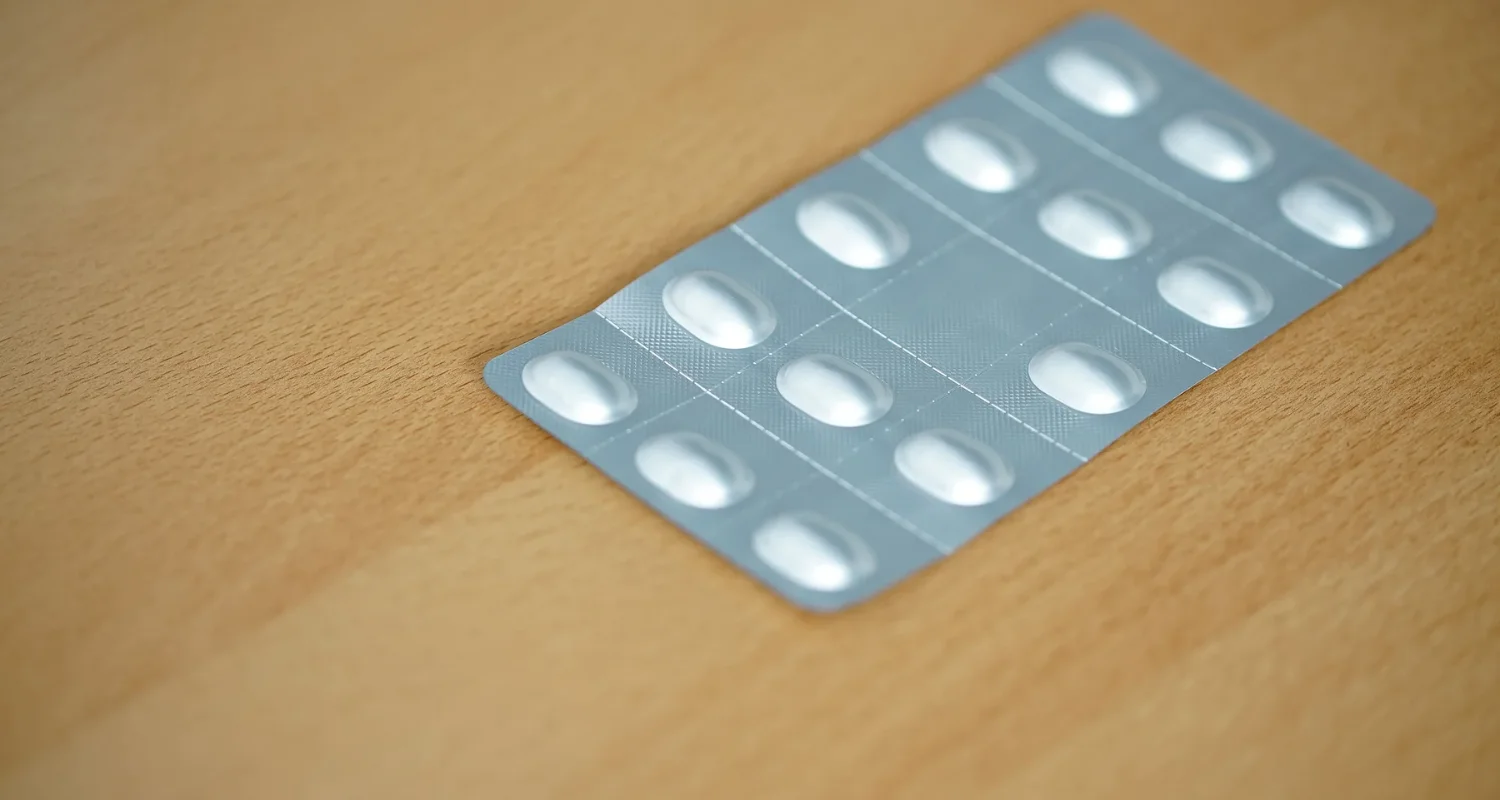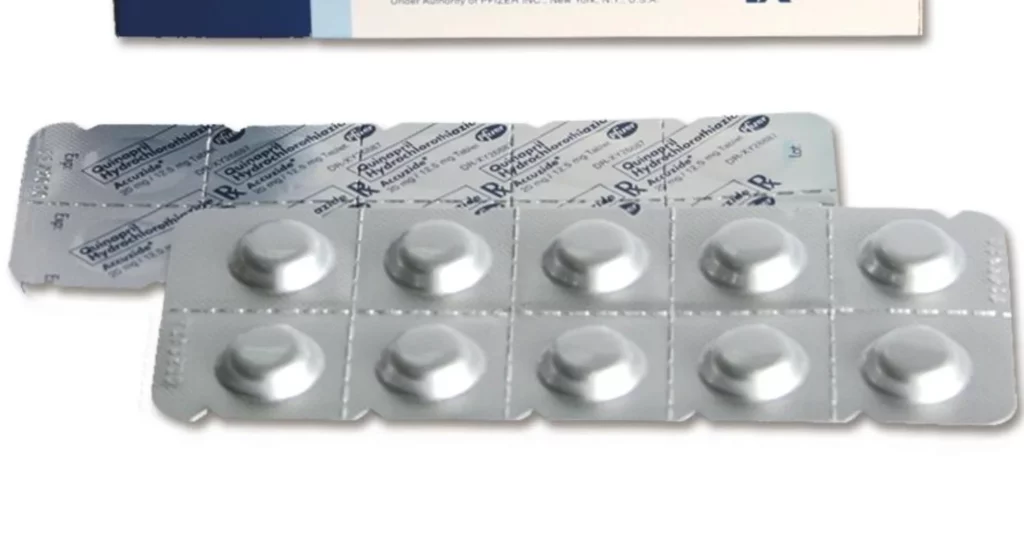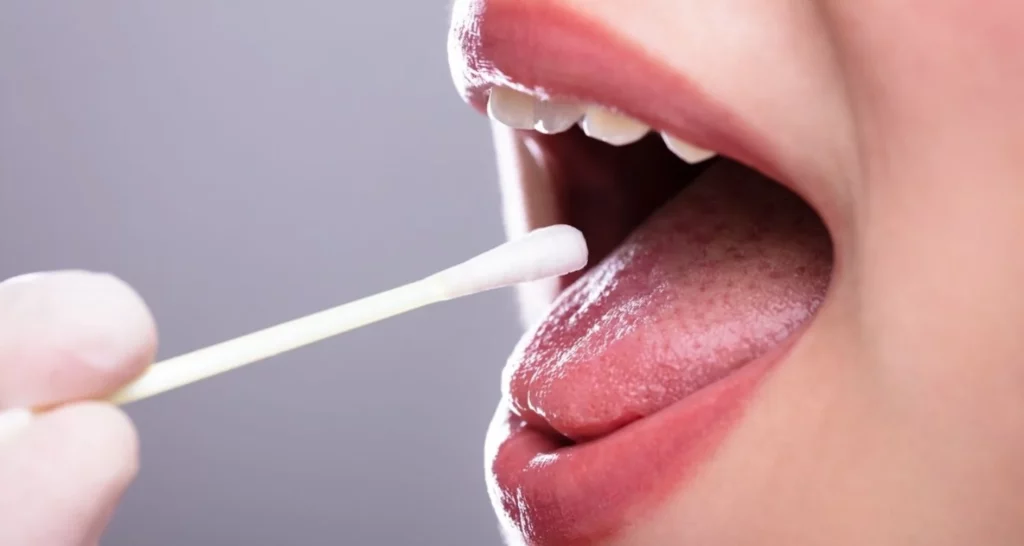Last Updated on: 22nd December 2025, 10:40 am
However, they are not free of side effects, such as the relationship between Quinapril and Xerostomia, one of the most common being xerostomia, popularly known as dry mouth. This side effect, although often underestimated, can have a considerable impact on quality of life, affecting aspects such as dental health, nutrition, and general well-being.
When your blood pressure rises sustainably or frequently, pharmacological treatment may be required, including antihypertensive drugs. Various therapeutic options manage this condition, which will depend upon age, pressure readings, the time elapsed and the patient’s other diseases..
Before opting for pharmacological treatment, it is advisable to try non-pharmacological measures such as reducing salt intake, exercising, hydrating properly and avoiding tobacco and alcohol consumption.
In the world of modern medicine, antihypertensives represent an essential class of medications in the treatment and management of high blood pressure, a condition that affects millions globally. These drugs, designed to regulate blood pressure and prevent cardiovascular complications, have significantly improved patients’ quality of life.
Quinapril and Xerostomia
What is blood pressure?
Blood pressure is a measure of the force that blood exerts on the walls of the arteries as it is propelled by the heart to the rest of the body. This measurement is vital, since its alteration can negatively impact various organs, leading to heart disease, cerebrovascular disease, kidney disease,and visual problems, among other health problems.
Blood pressure is determined in two phases: systole and diastole, which are movements carried out by the heart muscle. The measurement is presented in two numbers: the systolic pressure (upper number) and the diastolic pressure (lower number). Normally, healthy values are around 120/80 mmHg. If these values rise above the standard, we speak of arterial hypertension; if they are below, it is considered hypotension.
Multiple risk factors contribute to the development of blood pressure problems, such as the water and salt balance in the body, kidney function, hormonal imbalances, and stress. Regular blood pressure checkups are crucial, especially during routine medical visits. It is advisable to be in a calm and restful state to obtain an accurate measurement.
How does hypertension affect oral health? Is there any relationship between Quinapril and xerostomia?
High blood pressure, a disorder that affects blood flow throughout the body, has a direct and significant impact on oral health. Changes in blood flow caused by hypertension alter electrolyte exchange and other essential metabolic processes that take place in the mouth. These alterations are reflected in the composition and function of saliva, a key element in the digestion of food and medications.
When hypertension affects kidney function, the concentration and electrolyte balance in the body become unbalanced, which can lead to changes in the pH of saliva, making it more acidic or basic. This alteration in salivary pH has the potential to damage tooth enamel, increasing the risk of cavities and periodontal disease.
In addition, various studies have revealed a relationship between severe periodontitis and uncontrolled high blood pressure, showing that inadequate management of high blood pressure can exacerbate existing dental problems or contribute to the development of new ones.
On the other hand, the anxiety associated with visits to the dentist can temporarily increase blood pressure, complicating the interpretation of blood pressure levels in patients diagnosed with hypertension. This phenomenon highlights the importance of rigorous and conscious control of hypertension, not only because of its impact on cardiovascular health, but also its relevant effect on oral health.
What is quinapril and what is it for? Does quinapril cause dry mouth syndrome?
Quinapril, a drug belonging to the family of angiotensin-converting enzyme (ACE) inhibitors, such as enalapril and captopril, plays a crucial role in the treatment of high blood pressure. These medications work by regulating blood pressure levels, whether administered alone or in combination with other treatments.
Its mechanism of action focuses on the inhibition of a key enzyme involved in the renin-angiotensin system, a blood pressure regulatory system. By blocking this enzyme, quinapril facilitates the dilation of blood vessels, which helps reduce blood pressure and, therefore, minimizes the risk of cardiovascular complications associated with hypertension.
Generally, ACEIs such as quinapril are well tolerated by most patients and are considered first-line medications in the management of high blood pressure. However, it has been observed that these drugs may be less effective in African-American patients. One of the main adverse reactions associated with ACEIs is the generation of a dry cough and xerostomia (dry mouth), an example of which would be quinapril and xerostomia or dry mouth.
These side effects are a consequence of its mechanism of action and the body’s compensatory mechanisms when faced with changes in blood pressure. In some cases, xerostomia may be related to inadequate blood pressure control.
Saliva and Xerostomia
Saliva is crucial for oral health:
Production: Between 1 and 1.5 liters daily, essential for oral balance.
Principal functions:
● Lubricates the bolus to facilitate swallowing.
● Contains salivary amylase, important for digestion.
● Improves taste perception.
Xerostomia or dry mouth:
Definition: Decrease or absence of saliva production.While not a disease, it is a common symptom in various pathologies or side effects.
Common signs:
● Viscous or foamy saliva.
● Difficulty speaking and swallowing.
● Dry lips, tongue and mucous membranes.
● Bad breath and oral lesions.
Management and prevention of xerostomia or dry mouth:
8 Tips To Prevent Dry Mouth
1. Chew sugarless gum to avoid cavities.
2. Limit caffeine consumption.
3. Avoid mouthwashes with alcohol.
4. Give up smoking.
5. Drink water regularly.
6. Consult use of salivary substitutes.
7. Avoid over-the-counter antihistamines and nasal decongestants.
8. Breathe through your nose.
Maintain oral and dental health:
Healthy practices:
● Avoid sugary or acidic foods and drinks.
● Brush with fluoride toothpaste.
● Use mouthwash or gel with fluoride before going to sleep.
● Visit the dentist regularly.
Make a medical appointment:
● Important before the appearance of xerostomia.
● Avoid self-medication.
● Ensure adequate management of related antihypertensive therapies.
Conclusion
Awareness of the interaction between hypertension, the use of antihypertensives such as quinapril and oral health is crucial for both patients and health professionals. Hypertension can alter oral health through changes in blood flow and saliva, leading to conditions such as xerostomia or dry mouth. It is important that patients be informed about the side effects of their medications and that adequate follow-up is carried out to adapt treatments when necessary, since there is a close relationship between quinapril and xerostomia.
Management of xerostomia or dry mouth includes oral hygiene practices and lifestyle changes, as well as regular consultations with health professionals. A comprehensive approach that addresses both blood pressure and oral health is essential for the overall well-being of hypertensive patients.
Frequently Asked Questions
Can quinapril cause dehydration?
Taking quinapril may increase the risk of dehydration. This condition can lead to complications such as a significant drop in blood pressure, alterations in electrolyte levels or even kidney failure. It is important to tell your doctor about any planned surgery. Even if you do not have symptoms and feel well, if you suffer from high blood pressure, it is crucial to continue taking quinapril treatment according to medical indications.
Does quinapril cause dry cough?
Quinapril can lead to a severe, dry cough as a side effect. This symptom may be more noticeable if you are taking a diuretic (water pill), are on dialysis, or experience episodes of diarrhea or vomiting, situations that also increase the risk of dizziness or fainting. If you experience a chronic, dry cough during treatment with quinapril, it is important to consult your doctor.
Do blood pressure medications cause dehydration?
Drugs used to treat blood pressure, such as ACE inhibitors (angiotensin-converting enzyme inhibitors), including lisinopril and ramipril, as well as ARBs (angiotensin II receptor blockers), such as losartan , valsartan and irbesartan, can lead to dehydration if adequate water intake is not maintained during consumption, There is also a relationship between quinapril and xerostomia.
Is it appropriate to stop treatment with quinapril?
It is important not to stop taking quinapril without first consulting your doctor. Abrupt discontinuation of blood pressure medications may pose a more serious and immediate health hazard compared to the potential risk of contamination with N-nitroso-quinapril. Note that not all drugs classified as “ACE inhibitors” are involved in this problem.
Share:
References
1. MedlinePlus (Jan, 2023). High blood pressure in adults – hypertension. National Library of Medicine EE.UU https://medlineplus.gov/spanish/ency/article/000468.htm
2. Department of Scientific Information, Evidence Synthesis & Translation Research, ADA Science & Research Institute L. (Nov, 2022) Hypertension. https://www.ada.org/en/member-center/oral-health-topics/hypertension
3. Drugs, Prescription drug information interactions and side effects. (Feb, 2023) Quinapril. https://www.drugs.com/ppa/quinapril.html
4- WebMD. (n/f). Common and Rare Side Effects for quinapril oral. https://www.webmd.com/drugs/2/drug-6254/quinapril-oral/details/list-sideeffects
5. De Luca Monasterios. (2014). Etiopatogenia y diagnóstico de la boca seca https://scielo.isciii.es/pdf/odonto/v30n3/original2.pdf
6. Thomas J. Salinas DDS. (Agu, 2023) Tratamiento de la sequedad de boca: consejos para controlar la sequedad de boca. Mayo Clinic. https://www.mayoclinic.org/es-es/diseases-conditions/dry-mouth/expert-answers/dry-mouth/faq-20058424
-
Nayibe Cubillos M. [Author]
Pharmaceutical Chemestry |Pharmaceutical Process Management | Pharmaceutical Care | Pharmaceutical Services Audit | Pharmaceutical Services Process Consulting | Content Project Manager | SEO Knowledge | Content Writer | Leadership | Scrum Master
View all posts
A healthcare writer with a solid background in pharmaceutical chemistry and a thorough understanding of Colombian regulatory processes and comprehensive sector management, she has significant experience coordinating and leading multidisciplina...




















